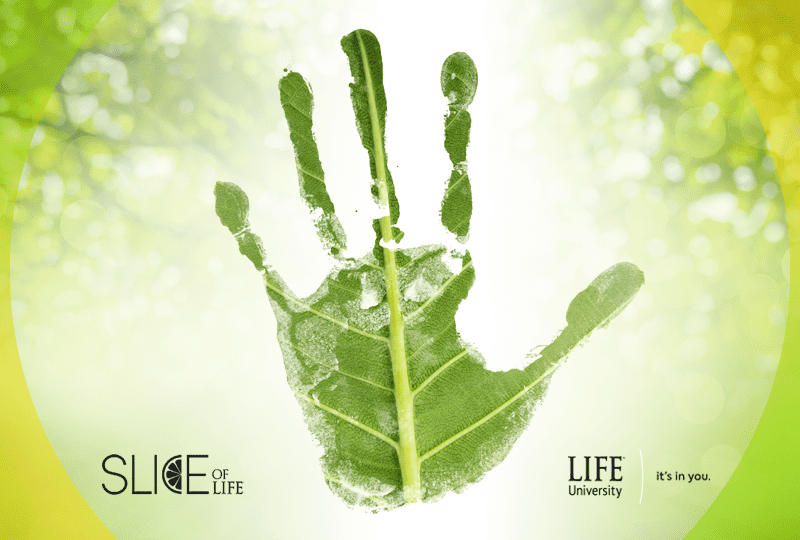Every now and then our blog takes a look at the degrees offered here at Life University not only so that prospective students have a greater idea of what possibilities are available to them, but also so that if you are meeting someone new on campus, then you have a better chance of understanding what they spend their time working on. For instance, we have already looked at the Dietetics program, as well as our master’s degree in Positive Psychology. Today we take a look at a program that similarly requires a bit of explaining, beginning with the title: Human Ecology.
The term “ecology” probably conjures up images from nature documentaries with David Attenborough narrating the migration of a herd of elephants. This would hardly be off base, as the field of “ecology” is defined as “the study of the relationships between living organisms, including humans, and their physical environment. Ecology considers organisms at the individual, population, community, ecosystems and biosphere level.” So yes, a classical view of ecology would be the study of the interrelationships between organisms or exploring how a given ecosystem shapes the life we find there, but for our study today, we really need to focus in on that term human. It is easy to fall into the trap of thinking that whereas animals in nature are somewhat subject to their surroundings, we as humans have surpassed that dependence with our mastery of technology and social structures. Human ecologists, however, would be quick to remind us that the world that we as humans construct for ourselves have just as much of an impact on our lives as the amount of rainfall does on the savannah or the introduction of a new species into an environment.
Perhaps the easiest way to get your head around what someone in a Human Ecology program would spend their time studying comes from a fork offered within the discipline. Reading over the program’s homepage, they mention:
Human Ecology majors may focus on either People, Politics and Social Change (PPSC) or Science, Sustainability and Resource Management (SSRM).
- Within the PPSC track, students will explore the challenges of sustainable living and will develop viable solutions to address pressing issues at both the local and global levels.
- This track is ideal for students who seek to be agents of social change within the public policy arena and other public forums.
- In the SSRM track, students will gain the technical skills required to examine the social, political and policy impacts of technological advancements and will generate practical approaches to alleviate some of the most-pressing environmental, economic and social challenges with an emphasis on sustainable practices.
- This track is ideal for students who are seeking careers related to science and sustainability practices within industry.
This distinction in courses of study brings us back to the point that the field of human ecology is a deeply interdisciplinary field, meaning that to understand the ramifications of how we coexist in the world we design for ourselves, we need to combine the study of biology with politics, or sociology with chemistry. For instance, someone following the Science, Sustainability and Resource Management track might end up working as a water resource specialist, a fish or game warden, or even monitor the effects of climate change. Alternatively, someone working in People, Politics and Social Change might end up working in urban planning, redesigning transportation and infrastructure, or working as a professional resource in legislative decision making. Students graduating from Life University’s Human Ecology program will be able to select from these various pathways because our program of study will give them a diverse background so that they are fluent in the various fields that are required of them. For instance, graduating with our Bachelor’s of Science degree will require credit hours from selections in anthropology, communications, public health, business and economics.
As always, if you want to know more, or know if this is a field you might want to dive into, then you can reach out to our faculty, our student body or even follow the Human Ecology Department on social media to see what is new. As with all of our other programs, Life University aims to give you the tools to not only understand and process the world around you, but to also make positive changes and become leaders with the program of your choice.
Slice of LIFE is an invitation to and extension of everything happening at Life University. Whether you are a current student, a potential freshman or a proud alum, Slice of LIFE can help keep you connected to your academic community. Know of a compelling Life U story to be shared, such as a riveting project, innovative group or something similar? Let us know by emailing Marketing@life.edu.


Social Media